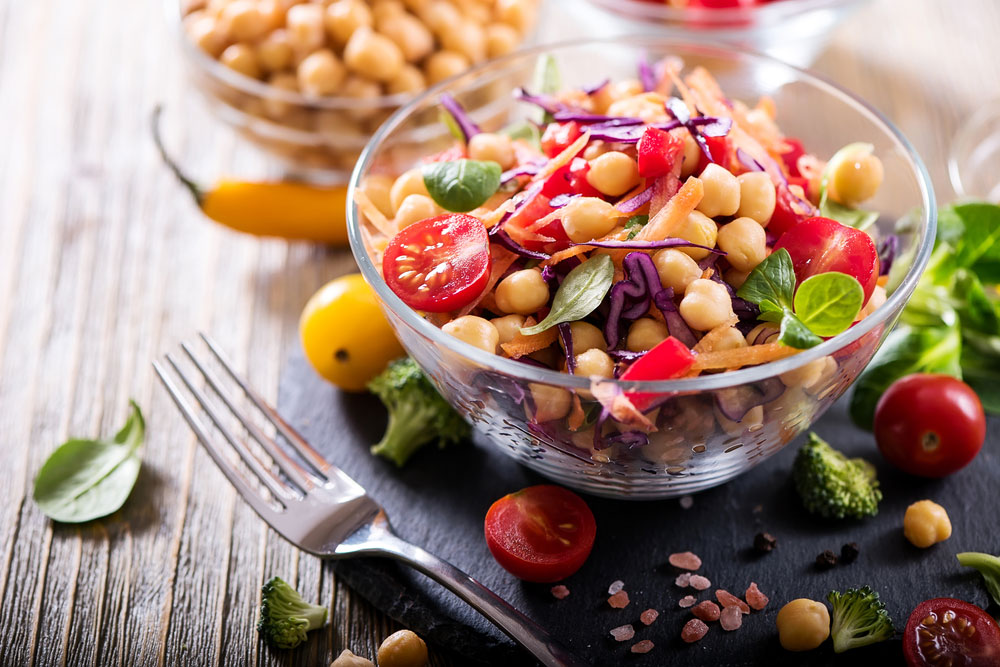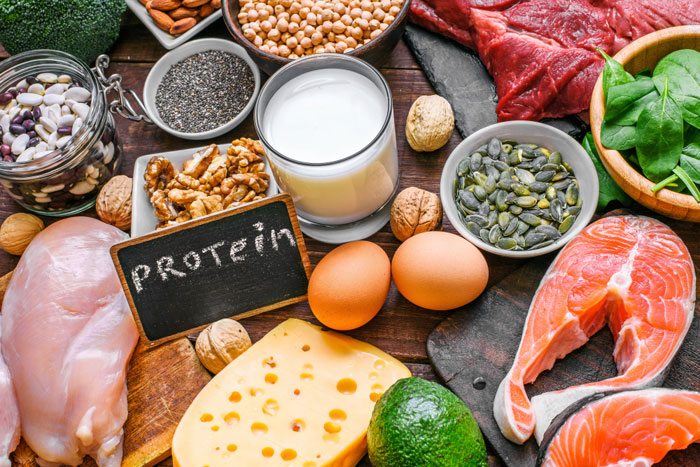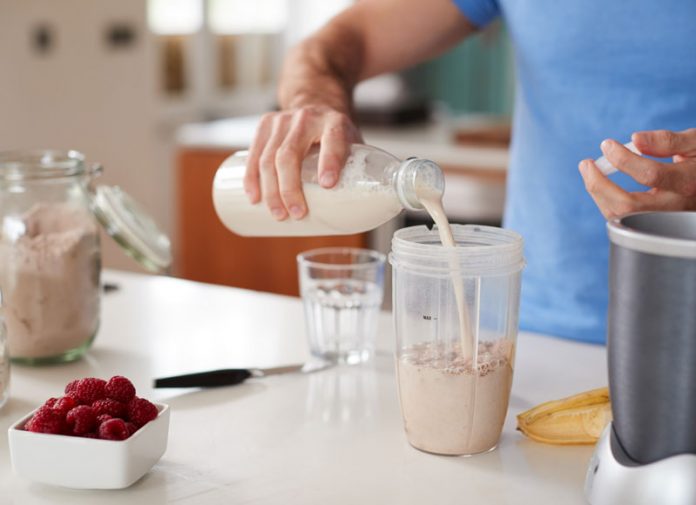Dr Nandini Saini tells us how to recognise the signs and symptoms of protein deficiency
Feeling tired? Have proteins. Hair fall? Have proteins. Recuperating from a long-drawn bedrest? Have proteins. Want to lose weight? Have proteins. Proteins form an important part of your diet in a number of medical conditions.
What are proteins?
Proteins are one of the three macro nutrients required by the body, which means they are required in large quantities. They are made by long chains of amino acids, both essential and non-essential. The placement and number of amino acids determine the functioning of the protein. Each species has a different characteristic protein.
Medical importance
Proteins are, literally, the building blocks of the body, present in our cells, muscles, enzymes and hormones. They influence many body processes, including blood clotting, enzyme and hormone formation and functioning, maintaining a good immune system. They also strengthen muscle mass, and are very important for overall growth and development.
How much protein do you need?
Protein requirements are different in various phases of life, with the geriatric age group usually needing it in larger quantities. The requirement also increases during pregnancy. The average individual needs to have about 56 Gms of protein, per day.
Hypoproteinemia – what is it?
Hypoproteinemia is a condition where the protein in your blood is abnormally low for your age and weight. It could be due to deficiency of albumin and globulin, or any one of them. A low albumin (Hypo albuminuria) could be a sign of an underlying medical disease.
It is usually seen most often in vegans, vegetarians, geriatric patients or those suffering from Crohn’s disease or PLE.
Causes of deficiency
The most common cause is malnutrition. Deficiency could also be due to gastrointestinal diseases like Crohn’s disease or coeliac disease, which prevent adequate absorption of proteins. Kidney failure is another major case, wherein the kidneys start excreting proteins in urine. Liver cirrhosis, extensive burns, hemorrhages are some other causes of hypoproteinemia.

Signs
Muscle atrophy (muscle mass reduction)
A reduced protein intake is the most common cause of muscle atrophy; correspondingly, muscle atrophy is one of the first and most common signs of hypoproteinemia.
The muscles store the largest amount of protein in the body. When protein intake is insufficient, the body starts deriving protein from muscles, causing muscular atrophy. It is mostly observed in the elderly, but is also seen as a result of prolonged hospitalisation, with inadequate food intake.
Alteration of skin, nails, hair
Our nails, hair and skin are largely made of proteins, as such, protein deficiency causes changes in one or all of them.
Nails may become brittle and break easily. In extreme cases, they might show brownish stains.
Hair, which is predominantly made of a protein called keratin, loses its lustre and becomes brittle. If the deficiency is not corrected, hair fall becomes an added symptom. This is because the body, in order to conserve protein, shifts the growth phase of hair into resting phase.
The skin may become flaky and show reddish splotches.
Hunger pangs
Constant hunger pangs, cravings for savoury food, could be linked to hypoproteinemia. This is because, in an effort to replace the lost protein, the body tries to compensate by increasing the appetite, especially for high calorie food.

PLE
Protein Losing Enteropathy is a condition where a person loses proteins through his gastrointestinal track. A person with PLE could complain of vomiting, diarrhea, stomach bloating. Fatty liver is a common symptom of hypoproteinemia…if left unchecked, it could progress to liver disease and, potentially, liver failure.
Osteoporosis (fragile bone structure)
Hypoproteinemia could result in fragile bones, making them susceptible to stress fractures. This is because, as body loses protein, it tries to replete it from other sources, including the muscles and bones. Weak muscles lead to weak bones and joints. Also, studies suggest that protein aids calcium absorption in the body; hence, low protein could reduce the calcium levels, making the bones weaker in structure.
Oedema
Oedema – fluid retention in the body – is a sign of severe protein deficiency. It occurs when albumin, the dominant protein in the body, reduces. Albumin maintains oncotic pressure, keeping fluid flowing in the circulatory system. Its deficiency causes the fluid to accumulate in tissue and body cavities, causing swelling of the body. A bloated abdomen is a common feature, seen especially in kids suffering from protein deficiency (kwashiorkor).

Weakened immunity
Even a low protein deficiency can affect the immune system, lowering your immunity levels and making you susceptible to infections. As protein is one of the key components of antibodies, the body’s capacity to fight bacteria and viruses reduces too.
Weakness and malaise
Over a period of time, if the protein deficiency is not corrected, you could end up feeling tired and weak very quickly. Loss of muscle mass is one reason. The other is that protein is an important part of hemoglobin, and reduced protein could affect the Hb synthesis. As the Hb in blood carries oxygen, your body could get oxygen deprivation, causing weakness and malaise.
Weak heart and lungs
Patients with protein loss due to cardiac diseases can present with symptoms of heart failure like pitting edema (Swelling which buckles when pressed), pleural effusion (fluid collection around the lungs) and shortness of breath.
Brain fog
The brain uses neurotransmitters like dopamine and serotonin to send and receive signals to and from the body…and neurotransmitters are made of amino acids. Reduced proteins could affect these neurotransmitters, causing symptoms like memory loss and mood swings.
Sleep deprivation
Tryptophan, an amino acid, is converted into serotonin, which regulates your sleep/ wake cycles. A deficiency of protein can, therefore, lead to insomnia.
Stunted growth
Protein plays an essential part in growth and development. Its deficiency, especially in children, can cause stunted growth, physically and mentally. It is one of the strongest symptoms of kwashiorkor (severe form of malnutrition)

Treatment in brief
A diet high in protein-rich foods usually rectifies the deficiency. Some of these are:
Eggs, chicken or turkey, seafood.
Lentils, legumes, dry fruits and nuts such as almonds and pistachios.
Milk, curd, yogurt.
A variety of protein rich powders are also available in the market if you are unable to avail of natural foods. Be sure to approach your physician if you feel you are suffering from protein deficiency; they can guide you as to your daily requirement.








